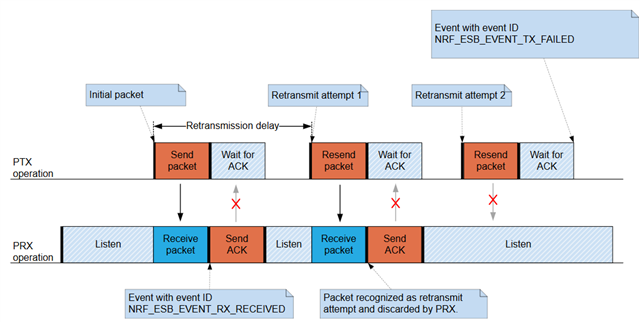Hi Q&A My keyboard chip is NRF52832, and the program uses ESB 2.4G communication. The receiver dongle uses NRF52833. Now there is a problem that when the CAPSLOCK is clicked with the keyboard, the receiving dog correctly returns the information of CAPSLOCK. When I click CAPSLOCK with another keyboard at the same time, the receiving dongle cannot return information. My understanding is that when ESB, as the sender, sends out a round of data and waits for a while to receive a response type of data, it will close the reception, and if the time exceeds, it cannot receive data. I don't know if my understanding is correct or how I should solve this problem?



